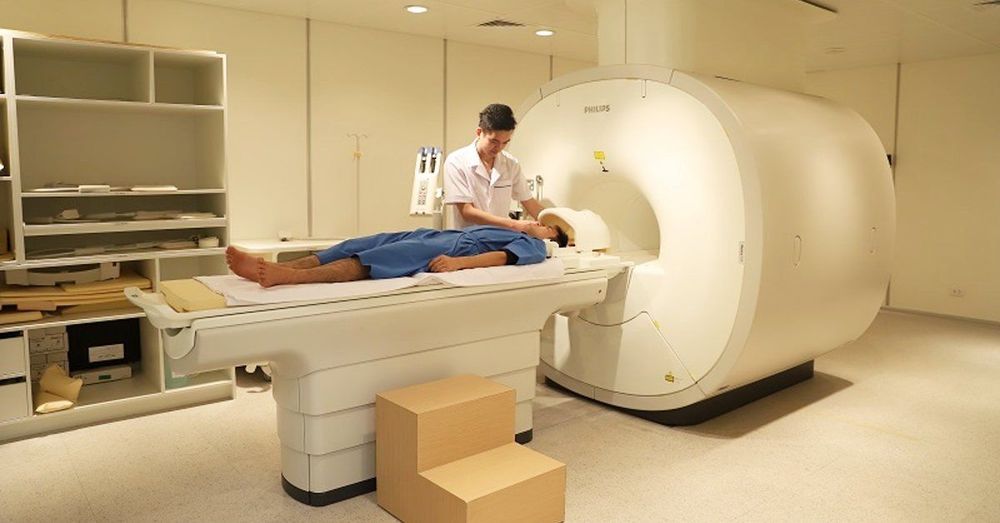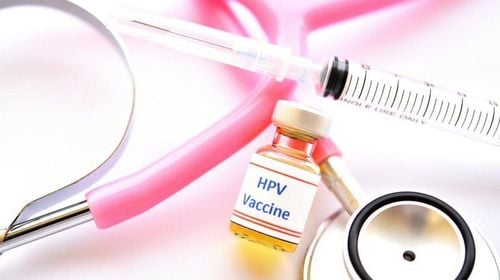This is an automatically translated article.
Cancer during pregnancy is not common, but if it does happen, it is a complicated situation for both pregnant women and doctors. Cancer rarely has a direct effect on fetal development, but the method of cancer diagnosis and treatment that doctors must consider is difficult.
1. What types of cancer can occur during pregnancy?
During pregnancy, breast cancer is the most common type of cancer, with an incidence of 1 in 3000 pregnant women. According to the natural physiology of pregnancy, the breast will enlarge, change shape, cover the changes of cancer, making cancer difficult to detect. Therefore, breast cancer during pregnancy is often detected later than breast cancer alone.
In addition, other cancers that are also common during pregnancy in young people are:
Cervical cancer Thyroid cancer Hodgkin lymphoma Non-Hodgkin lymphoma Melanoma trophoblastic neoplasms of pregnancy.
2. Methods of diagnosing cancer during pregnancy
Pregnancy can cause cancer to be detected later, because some symptoms of cancer (such as swelling, headache, breast changes, anal bleeding, ...) are common during pregnancy. . But that doesn't mean cancer can't be detected, for example, Pap test in routine antenatal checkup can detect cervical cancer, or ultrasound can detect ovarian cancer,...
Not all tests can be performed on pregnant women, because some tests can be harmful to the mother and fetus.
X-ray: many studies have shown that the radiation intensity of X-rays used in diagnosis is too low to cause harm to the fetus. If possible, pregnant women should use an additional lead shield to protect the abdomen during the scan. Computed tomography scan (CT): in principle of operation, computed tomography is similar to X-ray but has much higher accuracy, can detect cancer as well as detect cancer. metastasis location. CT scans of the head and chest are generally safe during pregnancy, because the fetus is not exposed to direct radiation. Like the X-ray, you can wear a lead shield to protect your abdomen during the scan. Computed tomography of the abdomen or pelvis is only conducted when absolutely necessary and prescribed by a doctor.
Other tests: Magnetic resonance imaging (MRI), ultrasound, and pathology are generally safe during pregnancy.

Chụp MRI cũng có thể áp dụng trong chẩn đoán ung thư ở phụ nữ mang thai
3. Cancer treatment during pregnancy
To establish a treatment regimen for cancer during pregnancy requires the coordination of many different specialties, including oncologists and obstetricians. They will discuss many aspects with each other:
Comparison of treatments, their effectiveness, risks to fetal development. Consider several factors, such as: The stage of pregnancy. The type, location, size, and stage of the cancer. Expectations of pregnant women and their families. Closely monitor pregnant women during treatment as well as monitor fetal development. In some cases, the doctor will prescribe to delay or not prescribe certain treatments, for example:
During the first trimester of pregnancy, some cancer treatments will harm the unborn baby. then have to delay them until the second or third trimester. If cancer is found in the late stages of pregnancy, your doctor will probably wait until you've delivered your baby before starting treatment. Another situation is that if cervical cancer is found at an early stage, the doctor may also wait for the pregnant woman to give birth before appointing cancer treatment. There are certain treatments that will harm an unborn baby at any stage of pregnancy, and doctors will most likely avoid prescribing these methods to pregnant women. For example, radiation therapy uses high-energy X-rays to kill cancer cells, but poses many risks to the fetus, because the degree of risk is based on the dose of radiation used and the area of the body being treated. .
4. Possible treatments during pregnancy

Hóa trị có thể được sử dụng điều trị ung thư trong thai kỳ dưới sự cho phép của bác sĩ
If you have cancer during pregnancy, some possible treatments are:
Surgery: during surgery, the doctor removes the tumor and some surrounding healthy tissue. This method has very little risk to the fetus, and is considered the safest treatment for all stages of pregnancy. Chemotherapy: doctors use chemotherapy to kill malignant cells, but only at certain times of pregnancy: During the first trimester of pregnancy, the fetus's organs are still developing , so there is a risk of chemotherapy causing birth defects or miscarriage . During the second and third trimesters of pregnancy, doctors may prescribe certain types of chemotherapy that do not have a noticeable effect on the fetus. The placenta acts as a barrier between a pregnant woman and her unborn baby, preventing certain medications from getting through, while others can get through in small amounts. Studies show that babies exposed to chemotherapy while in utero do not develop abnormalities immediately after birth or during development and growth, compared with babies who are not exposed. Chemotherapy in the later stages of pregnancy can cause unwanted effects in pregnant women, thereby indirectly harming the fetus (a possible undesirable effect is anemia at birth, leading to increased risk of infection). Some doctors may recommend early induced labor to protect the baby from cancer treatments. However, it is still best to try to let the fetus grow and labor naturally. Babies born prematurely have a higher risk of health problems than babies born naturally who are exposed to chemotherapy chemicals. Women undergoing chemotherapy should not breast-feed, because the chemicals can pass into the baby's body from breast milk.
5. How does pregnancy affect cancer risk?
Pregnancy by itself has no effect on the effectiveness of cancer treatment. But if diagnosis and treatment are delayed because of a woman's cancer, the cancer can have a greater impact, leading to increased cancer-related risks.
6. Questions pregnant women can use to consult with the doctor
If you have cancer during pregnancy, you can ask some questions during your consultation with your doctor:
Are there any special tests that should be done? Which treatment regimen should be used? In this case, is it better to treat immediately or delay? Is it safe to continue getting pregnant? In the short and long term, how will the treatment affect the baby? Will the treatment affect labor? Should you breastfeed?
During pregnancy, if you have unusual symptoms, you should be examined and consulted with a specialist.
Please dial HOTLINE for more information or register for an appointment HERE. Download MyVinmec app to make appointments faster and to manage your bookings easily.
Article referenced source: cancer.net












